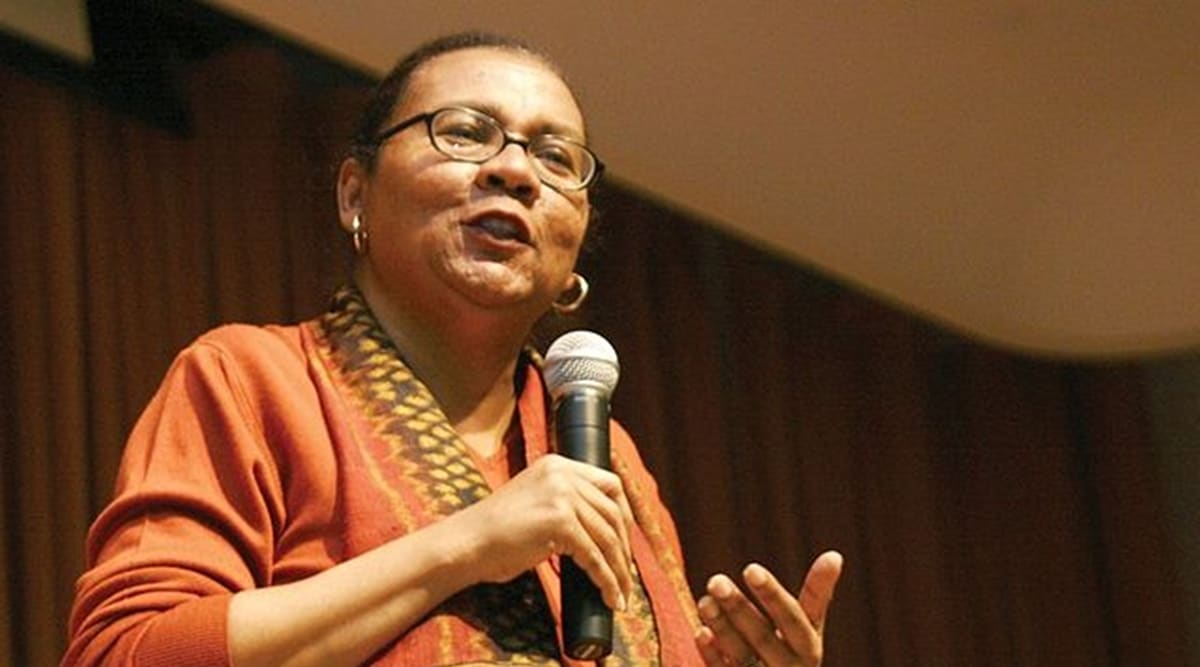
“Fear of losing control in the classroom often leads individual professors to fall into a conventional teaching pattern wherein power is used destructively.” — bell hooks
As a teacher, I have always felt that our academic culture needs a thinker/ educationist/ emancipator like bell hooks. Even though we can no longer see, feel and experience her embodied existence, it is important for us to invoke her time and again, allow ourselves to be touched by her passion and conviction, and redefine the meaning of teaching and scholarship. Yes, we have already read a series of obituaries; and enough has been said and written about this Black American feminist thinker, her sharp critique of racism and patriarchy, her expanded horizon that enabled her to continually write on gender, racism, sexuality, culture, pedagogy, love and even children’s literature, and above all, the immense politico-intellectual strength that characterised her life’s trajectory — from being born in a working-class family, growing up in a ghettoised/segmented Black locality, and eventually emerging as a charismatic professor nurturing and inspiring generations of students.
However, I wish to stress three principles that bell hooks internalised as a scholar/teacher; and these principles, I would argue, have immense relevance if we wish to humanise the prevalent academic culture. To begin with, let it be stated clearly that bell hooks was refreshingly different from a typical “value-neutral” academic — devoid of emotion and passion, and burdened with heavily technical and jargonised publications. And this sickness, every insider knows, is tempting; it has affected many Marxist, poststructuralist, postmodernist and even feminist thinkers and writers. Ironically, scholarship has been equated with incomprehensibility. But then, bell hooks was endowed with immense courage; she defied the style of this sort of prose; instead, her books and articles flow like a river, her words touch the soul of the reader. In a way, theory, for her, was like poetry. Yes, many scholars of the leading American universities where she taught were not very happy with her style and mode of writing. Yet, she inspired us, and gave us the confidence to realise that writing, instead of being reduced to a purely narcissistic exercise of demonstrating one’s “intellect”, can be therapeutic.
Second, she altered the character of the classroom. In a way, she took Paulo Freire pretty seriously. For her, emancipatory education ought to be dialogic and experiential. And a teacher ought to cultivate the art of non-judgmental/compassionate listening. Quite often, in our classrooms, no engaged dialogue takes place. A “scholarly” lecture by a professor, absence of lived reality and experience (even poetry or popular culture is taught like differential calculus), with a lengthy reading list, and repeated production of jargonised seminar papers: Most of our students experience this routine, or coldness of academia. But then, bell hooks transformed her classrooms, altered the meaning of the relationship between teacher and student, and encouraged young minds — particularly, Black women in a White male-dominated space — to articulate their voices, and their pain and trauma. Through this dialogue, reflexivity and inner churning, she continually interrogated patriarchy, racism, and other forms of domination in her classroom. Of course, most of us seek to avoid this sort of engagement with our students because it can also be emotionally taxing. Hence, quite often, our engagement with students remains limited to a bureaucratically-defined task — “covering” the syllabus, grading the students, and then forgetting them. Anyone who wants to join the vocation of teaching, I feel, must read bell hooks — particularly, Teaching to Transgress: Education as the Practice of Freedom.
Third, bell hooks taught us another important lesson: Love is the essence of revolution. Quite often, in a dry intellectual milieu, we experience the absence of warmth. And it is impossible not to witness the growing culture of cynicism and despair. But bell hooks, despite the violence she saw in the world, didn’t lose her spirited religiosity — the religiosity of love and hope. We live amid a culture that normalises violence, be it structural, psychic or cultural. We live amid spectacular consumerism with the violence of what Erich Fromm would have regarded as a “having mode of existence”. It is a hyper-competitive social Darwinism that, as Thich Nhat Hanh would have said, negates the art of living “here and now” with mindfulness and meditative calmness, and the hyper-masculine aggression of militarism, religious fundamentalism and toxic nationalism. It is easy to accept this pattern, and “adjust” oneself to this pathology. However, bell hooks reminded us of the “redemptive” power of love, compassion, empathy and forgiveness. In moments of pain and despair, I read her amazing book, All About Love, and echo with her: “No matter what has happened in our past, when we open our hearts to love we can live as if born again, not forgetting the past but seeing it in a new way, letting it live inside us in a new way. We go forward with the fresh insight that the past can no longer hurt us.”
Without love, there cannot be any pedagogy of hope. Possibly, for those who celebrate the enchanting power of engaged pedagogy, and still dream of a compassionate, inclusive and egalitarian world, bell hooks would remain alive, and continue to sing her songs.
The writer is professor of Sociology at JNU
source: https://indianexpress.com/article/opinion/columns/bell-hooks-pedagogy-hope-education-feminism-7698762/
Your content is great. However, if any of the content contained herein violates any rights of yours, including those of copyright, please contact us immediately by e-mail at media[@]kissrpr.com.
